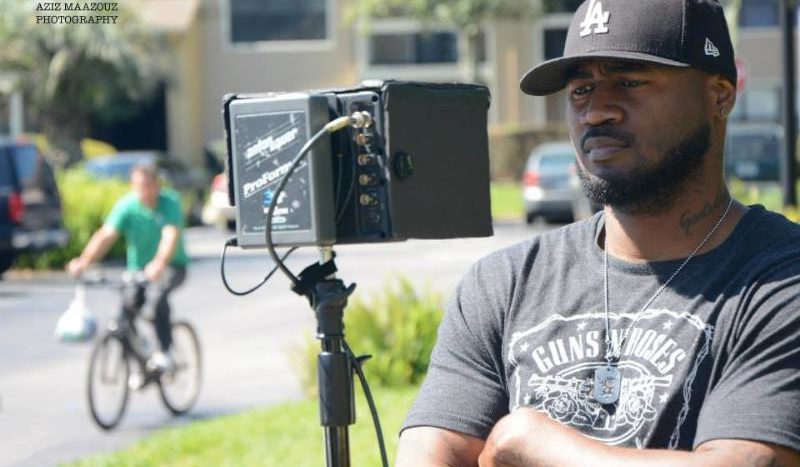
Antonio R. Cannaday wrote and directed Ex Post Facto, a film warning of the dangers of wearable technology. Photo/Aziz Maazouz
[dropcap]E[/dropcap]x Post Facto tells the story of technology used in the wrong way leading to a very bad outcome.
First-time director Antonio R. Cannaday said he came up with the concept after reading about Google’s Glass project.
Glass, a product in beta from Mountain View-based search giant, aims to put the power of computing in your eyeball. Among the capabilities of the device is the ability to take pictures and video with voice commands or gestures.
Cannaday, who studied film production at Orlando Tech, attempts to warn of the dangers of evolutions of this type of technology in the film in which a glasses-based technology is shown to have the power to physically take control of people.
Although Cannaday doesn’t think technology will actually reach the capabilities described in the film, he thinks we should regard this type of wearable technology with caution.
“Personally I think it’s just a matter of time before people start using it for the wrong purposes, he said. “A pedophile can easily walk to a schoolyard with a bunch of playing kids, have on these glasses and simply record these young kids through these glasses.”
Although everyone has a camera in their phones these days, he views Glass and products like it as being in a different class entirely.
“You have to hold your cell phone up and record toward the person,” Cannaday said. “That’s a dead giveaway.”
While he is leery of the technology, he concedes potential positive uses for the military and even the general public, with informed consent.
“I think as long as the parties involved know the particulars of the situation, the situation is completely transparent and the other party is aware of the capabilities of Google Glass, I think with limitations and with transparency it can be done,” he said.
Although you can often legally record in public spaces, Cannaday said there is the potential for paranoia without complete openness. He points to a video that circulated on social media last year involving a woman getting in a bar fight over Google Glass.
The 13 minute short can be viewed on YouTube (warning: NSFW, strong language and depictions of sexual violence).


